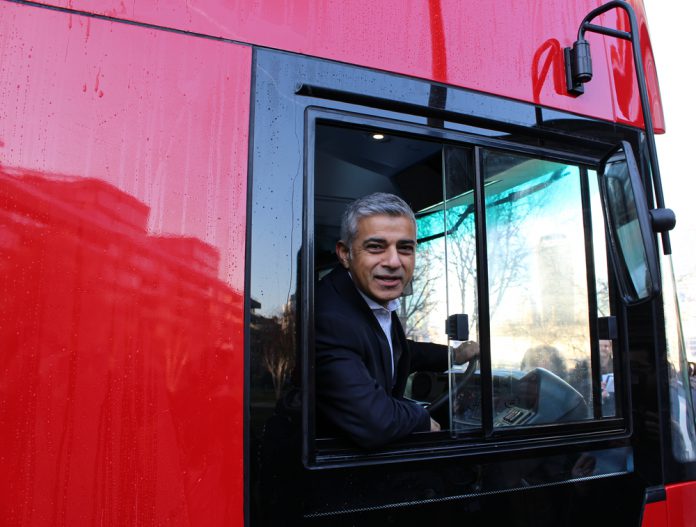Sadiq Khan in planning to publish a new transport strategy on Wednesday with new initiatives such as pay-per-mile road pricing and banning car parking in new developments in an attempt to cut 3 million car journeys a day in London.
The London Mayor has ambitious plans to cut emissions in the capital as well as ensure that 80 percent of journeys in London are made by public transport, walking or cycling.
“As London’s population is set to increase beyond 10 million, our future health and prosperity is more and more dependent on us reducing our reliance on cars.” said Khan.
“We have to be ambitious in changing how our city works. While there will be 5m additional journeys being made across our transport network by 2041, at the same time we’re setting ourselves a bold target of reducing car journeys by 3m every day.”
“We have to make not using your car the affordable, safest and most convenient option for Londoners going about their daily lives. This is not only essential for dealing with congestion as London grows but crucial for reducing our toxic air pollution and improving the health of all Londoners.”
The “healthy streets” initiative will encourage walking and cycling in order to cut pollution and combat diseases associated with inactivity.
Approximately £2.1 billion has been allocated to double the amount of spending on cycling in London.
“London’s continued success as a great city depends on our ability to move around without the pollution, ill-health and congestion that comes with excessive car use” said German Dector-Vega, the London director of the transport charity Sustrans.
“It’s now imperative that London’s boroughs – who own 95% of London’s streets – get on with delivering improvements that will make a real difference for walking and cycling.”
Cycling UK’s policy director, Roger Geffen, said that the plans were “a breath of fresh air from our otherwise polluted capital”.
“Sadiq Khan’s Strategy has laid down the gauntlet to other city and county council leaders to set out similarly ambitious plans for their areas,”
“It’s now down to national government to provide them with the support they need, as they tackle the problems plaguing our cities, particularly air pollution.
“A new Clean Air Act could really help local authorities not only to reduce road traffic and the pollution and congestion it causes, but also to invest in high-quality cycle networks and other healthy transport solutions for their areas.”

